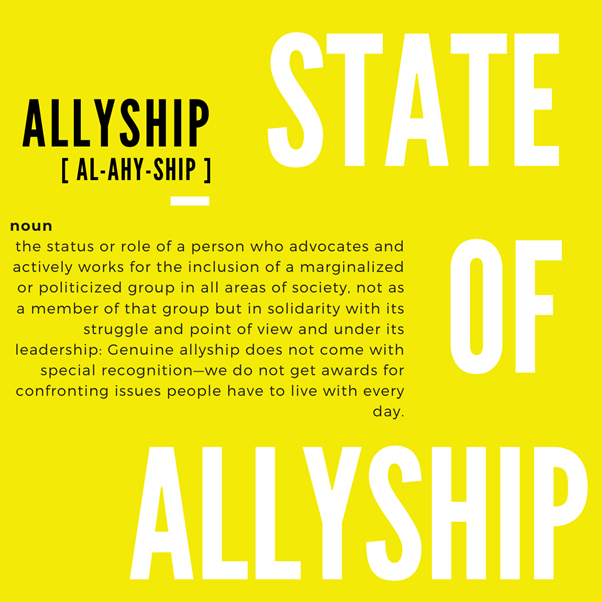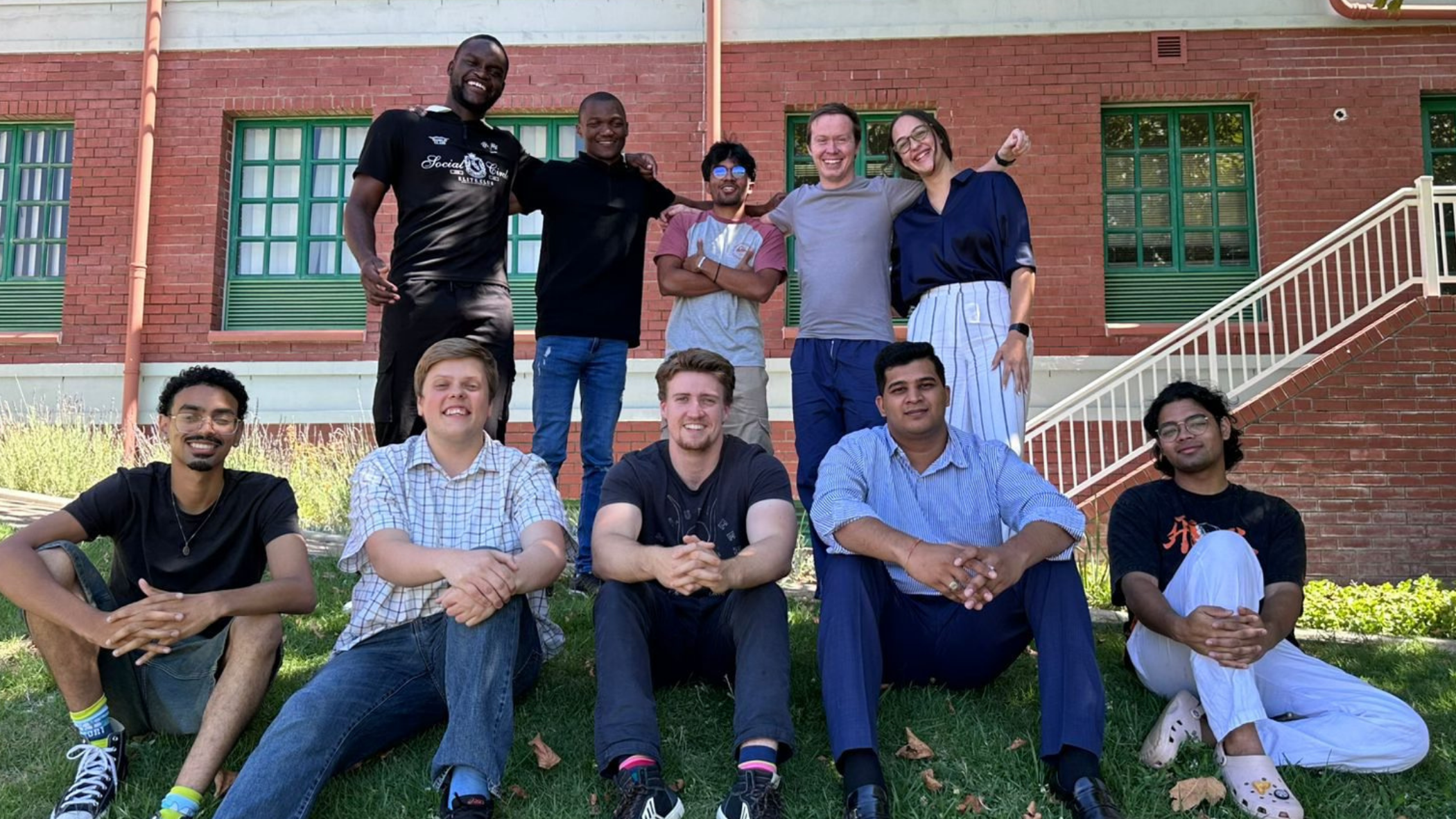
As the world confronts increasingly more complex challenges, the integration of systems thinking and technology is critical. By breaking barriers and harnessing the strengths of both, we can develop more effective and sustainable solutions to the wicked, often ambiguous, and dynamic issues facing humanity. To solve them, we must embrace the pivotal role of diversity and inclusion.
Breaking barriers, fostering connections
Bringing people together with unique backgrounds, experiences and problem-solving approaches helps create more robust solutions. It highlights issues from multiple angles which shows up blind spots and challenges assumptions. For this to translate to innovative solutions, we must foster allyship. This builds a better future where technology serves humanity at its fullest potential.
Our industry is known for its innovation and drive, but it can also be a place where historically marginalised groups face challenges. Safe spaces are crucial in creating a more inclusive and welcoming environment for everyone. We need greater diversity in hiring and more role models for disadvantaged groups to address the current lack of representation. Breaking barriers could not be more relevant.
Statistics highlight the gap that still exists in tech:
- White workers make up a staggering 62% of the high-tech workforce, followed by Asian workers (20%), Hispanic and Latino workers (8%), and Black workers (7%).
- In 2022, women made up only 28% of the tech workforce. Women hold a mere 5% of leadership roles in tech. Women of colour are significantly underrepresented in the technology sector, with Black women accounting for only 0.7% of all IT roles.
- Despite the demand for more female voices, major tech conferences often feature male-dominated programming and a 4:1 ratio of male to female speakers, dissuading women from attending.
Imposter syndrome: An industry issue
Imposter syndrome has become increasingly prevalent in the tech industry, affecting individuals at various stages of their careers. The phenomenon shows itself in feelings of inferiority, disbelief in oneself and a constant dread of being exposed as a fraud, even though one is successful and competent.
We have an annual internship program at KRS. It is a bootcamp for graduates and people who really want to start their journey as Software Engineers. Imposter syndrome often disproportionately affects people of colour early in their careers, highlighting the urgent need for increased support and assistance. Indeed, Addressing imposter syndrome requires a multi-faceted approach. This includes fostering supportive work cultures, promoting diversity and inclusion, providing mentorship and psychological support, and encouraging open conversations about mental health.
As a law graduate with limited tech knowledge venturing into a male-dominated field, there were daunting moments that I came across early in my career. These included fighting imposter syndrome myself and overcoming stereotypes. Public speaking was particularly scary for me. The thought of standing in front of a crowd and delivering a talk filled me with anxiety.
Building confidence
My confidence began building up slowly after I joined Toastmasters through my organisation’s career development initiatives. Attending local conferences and seeing someone on stage who resembled me and commanded the audience’s respect instilled a profound sense of security and encouragement. Seeing such representation validated my presence and capabilities in the tech community and helped motivate me to overcome my hesitation and to take the leap to speak at conferences myself.
It reinforced that I belong in this space and that my voice and contributions were valuable and respected. I have been fortunate to have mentors, friends, and colleagues who played key roles in my journey.
Finding inspiration
I recently presented at the DDD conference in Amsterdam. This year was my second-year attending, and I was really impressed by their safety and inclusion initiatives and the conference’s work in promoting diversity, with a deliberate and intentional focus on inclusion of women in tech as speakers.
Conference Buddy was also employed at DDD to foster companionship at technology conferences. Representation and visibility in tech conferences have a profound impact on both individuals and the broader industry. I want to contemplate on the role of allyship and the lasting effects of these gestures. There are specific friendly faces and their names that I will never forget because of their kindness.
At our workplace, a Leader who believed in my ability and supported me to grow, a lifeline of validation and empowerment. At conferences, a head nod or even a smile during a talk can go a long way to encourage the speaker. A simple, yet powerful act.
Ways to be a better ally
- True culture change starts with awareness. Educate yourself about the challenges women and other marginalized groups face in the tech industry, such as bias, microaggressions, and lack of representation. Learn about their contributions and achievements to appreciate their impact and importance in the field.
- Seek opportunities to amplify their voices. Invite more diverse opinions. Encourage conference organisers to invite diverse speakers to share their expertise and perspectives. Commit to celebrate their accomplishments in your workplace and within your professional networks.
- Help build inclusivity by actively supporting and advocating for diversity initiatives. Introduce them to influential contacts and facilitate connections that can enhance their visibility and opportunities. Advocate for better representation at conference and adhere to conference codes of conduct that prioritise safety, respect, and inclusion for all attendees. Consider not attending an event if they are not willing to better their approach to Diversity and Inclusion.
- Foster an environment that values differences. Listen actively to the experiences and concerns of others without interrupting or dismissing their perspectives. Acknowledge and validate the challenges they face, showing empathy and support.
- Provide Mentorship and Support. Mentor and share your knowledge, experiences, and career advice. Recommend them for speaking engagements, leadership roles, and career advancement opportunities.
- Challenge Biases and Microaggressions. Speak up against sexist remarks, stereotypes, or exclusionary behaviours when you witness them. Help educate colleagues and peers about unconscious bias and the importance of inclusive language and behaviour.
Safe spaces are crucial to nurturing a culture of inclusivity at workplaces and tech conferences, promoting respectful dialogue and receptiveness. These problems are system-wide and require that we collectively work against them and dedicate ourselves to change.
Moving forward and breaking barriers
Let us answer the call-to-action as we advance marginalised people in STEM. This enables them to fulfil leadership roles which will help bring about the tech advancements needed into society that ensures an inclusive path forward. Your work as an ally will cut through a substantial piece of that glass ceiling.
Image courtesy of: https://diversitycrew.com/2022/03/11/the-state-of-allyship/


